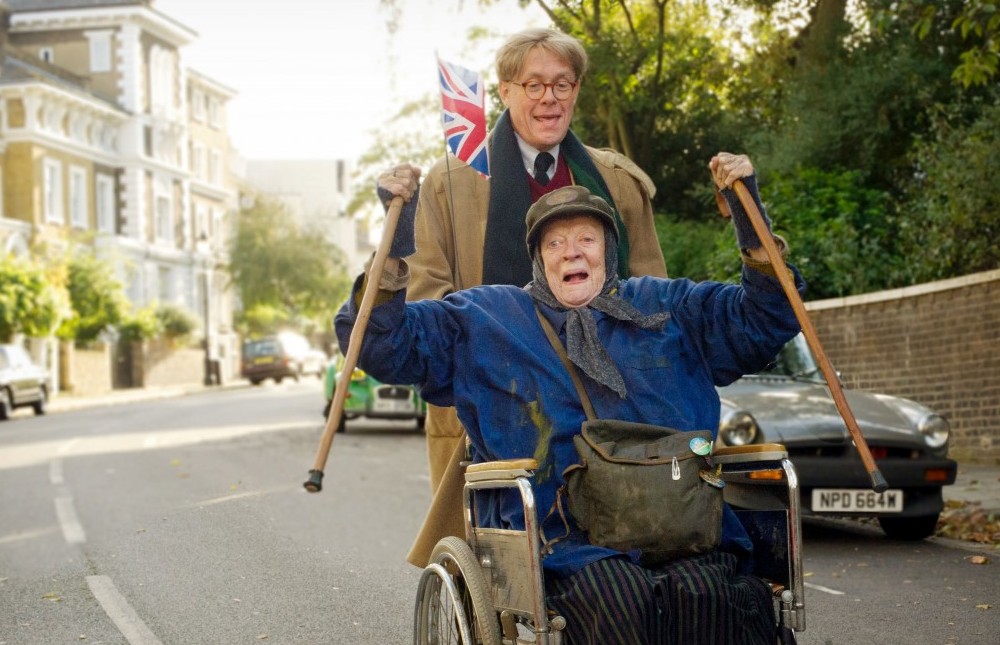Alan Bennett adapts his stage play of the same name for the big-screen, and for the third time he enlists the help of director Nicholas Hytner to helm the project, after two previous successful adaptations of his work in the past – ‘The Madness of King George’ (94) and ‘The History Boys’ (06) with the cast of the latter all finding cameos here, bar Richard Griffiths who has sadly passed away since. Taking centre stage as the eponymous anti-hero is Maggie Smith, for whom this marks the third time she has embodied ‘lady in the van’ Mary Shepherd (having appeared as her onstage and in a radio adaptation), a homeless woman who parked her van on Bennett’s London street in the 1970s and then eventually ended up living in his driveway for the next fifteen years, after he befriended his unlikely neighbour.
The dichotomy of Bennett’s thoughts on the matter are represented to us onscreen by two versions of himself (each played by Alex Jennings) talking to each other and mulling over the rights and wrongs of the situation, whether or not he’s simply being used as a mug, and indeed whether or not he will eventually feel compelled to pen her life story or that of the curious happenstance of their friendship. However, it may well be a little darker than that – Bennett is clearly not exactly hard up at this time in his life, he was already a successful playwright and writer, and it’s impossible not to think he must have been able to do more to help, rather than sit back and complain about the growing public health concern on his doorstep. It’s perfectly possible he allowed the situation to develop precisely because it was an opportunity to garner new and original material, or observe the human condition from a unique vantage point but without getting too close, without giving her the spare room and a new set of clothes, for example, or helping her to find a home through the council.
Instead, the film charts what actually happened as Mary continues to live in her van almost like a human limpet attached to the side of Bennett’s drive, eternally surrounded by the stench of damp paper and faeces whilst being closely watched by those who want for nothing in a rich area of the capital, and as we learn more about her life prior to becoming homeless things don’t get any less dark, featuring betrayal by both nuns and family members who should have know better, all leading to a lifetime of nothing but Catholic guilt for a bedfellow and her prayers for sanctuary.
The acting from Smith is great as always and the tone is kept fairly light throughout to match the somewhat comic situation, but even this well intentioned artifice cannot cover up the depressive reality that permeates the entire film, leaving it as a fascinating but deeply sombre snapshot of modern day life that has us ask numerous questions of ourselves, as we wonder how secure our lives are and what we would do if confronted by a similar social problem.

